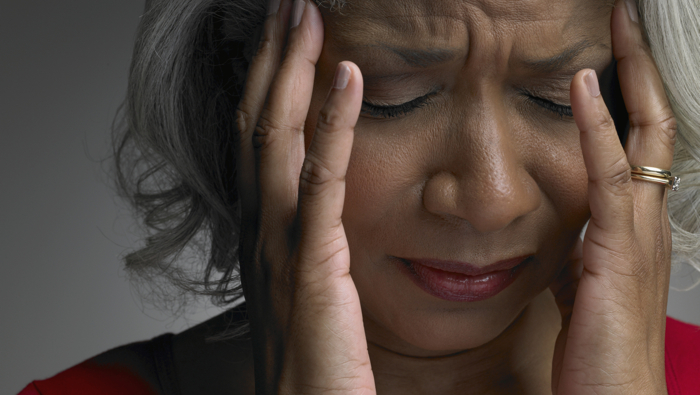Dementia is one of the most common diseases in India. According to statistics, almost 10 million cases occur in India every year. Even after being this common, people in India are quite unaware of it and don’t have enough knowledge.
It is quite surprising that people don’t recognize this disease and consider it normal. Since this syndrome is related to memory loss people find it quite common and ignore it especially at an older age. However, severe symptoms of this disease could not and shall not be ignored. Thus, one has to be cautious and take this disease seriously ignorance can lead to fatal ends.
What is Dementia?
It is not a single disease but a term used to describe collective symptoms related to memory ability and day to day performance of a person. Basically, it is a syndrome in which memory of a person deteriorates, his or her thinking behavior changes, and the ability to perform everyday tasks reduces.
It is the chronic symptoms that increase as you age. One loses his or her ability to do cognitive function that is a basic function to process a thought. This decay of cognitive function is accompanied by a lack of social behavior, emotional strength and control, and motivation towards life.
Stages of Dementia
There are usually 4 stages depending upon its severity.
- Very Mild Cognitive Impairment (MCI): normal forgetfulness which can be observed in anyone
- Mild Dementia: cognitive impairments that affect the day to day activity of a person. A person may be able to perform independently but will face issues with memory, processing things, expression, etc.
- Moderate Dementia: the advancement of symptoms, will be needing outside assistance.
- Severe Dementia: much severe and worse condition. A person can lose control on very basic things and become more vulnerable to diseases like pneumonia.
Dementia Types
There are a total of many types of dementia. However, there are only a few which are common. Others occur very rarely like 1 in 1 million cases. The most common types are:
- Alzheimer’s is of the most common form. Accounts for up to 60 to 80 percent of dementia cases. It gradually causes the slow decay of the brain, chronic disease with no cure.
- Frontotemporal Dementia: in this condition brain cells cannot function. Affects the language and behavior of the person mostly.
- Parkinson’s disease: neurological movement disorder. Common symptoms are tremor, change in writing, masking, uncontrollable movements in sleep, etc.
- Vascular dementia: causes a decline in cognitive movements. Issues with judgment, memory, and reasoning
- Lewy body dementia: caused by the deposition of abnormal protein in the brain. It affects how the brain processes any information. The most common symptoms are, tremors, hallucinations, difficulty in alertness, complex problems, memory.
- Mixed dementia: when symptoms of two or more types of dementia occur together.
Why do you need to know about this disease?
Dementia can be more tricky and dangerous than you think. Below are some major key points about why one has to be more aware of it!
- It is most prevalent among old age people, lack of knowledge leads to a lack of empathy towards them.
- This syndrome not only affects the person but also it’s surrounding. It has a clear effect on its social status, work-life, personal relationships, etc. All of this can lead to a huge amount of discord and stress in a person’s life.
- Due to a lack of awareness about it, people are often stigmatized which leads to obstacles in its diagnosis.
- It can lead to more severe psychological disorders.
- Highly affect our sense of judgment and decision making
- It also affects the way we speak, our language.
- At the bottom, it affects our overall personality and health.
Thus it is very important to assess the symptoms and seek medical help.
 Dementia Causes
Dementia CausesDementia Causes
There can be several of its causes, the most common is the degeneration of neurons (brain cells). Anything which causes an imbalance in the functioning of neurons can be the cause of dementia. Essentially, a disturbance in the neural connections and brain is not able to gather information, process it, store it and send signals to the body, all this is caused by the slow decay of neurons and eventually their death.
Injury caused by accident, HIV infections, stroke, prion disease can lead to neural degeneration or progressive decay of brain cells, leading to it. Metabolic disorders, structural brain disorders, the introduction of toxic material in the body are some of the other causes. One’s daily history also matters in several cases. Other causes of dementia depend upon the type of it.
Dementia Symptoms
Mostly its symptoms are related to the types. Dementia is itself a group of symptoms indicating the underlying serious diseases. Largely these symptoms are related to memory loss and process things.
Symptoms can range from severe to mild depending upon the dementia types. Usually, the symptoms are easily noticeable as dementia brings major changes in one’s personality and one can notice it themselves. Some symptoms can be noticed by doctors.
Symptoms are as follows:
- Difficulty in remembering things leading to misplacing things and other
- Difficulty in completing day to day tasks like cooking, cleaning, etc.
- Communication issues: difficulty with language
- Difficulty in writing
- Being disorientated
- Lack of will: losing interest in everything
- Difficulty in judgment and decision making
- Sudden mood swings
- Overall personality change
- Facing a hard time with the change in environment
- Being repetitive: asking the same thing again and again
- Being confused about simple things
- A problem in solving complex or mental problems
- Problem in comprehension things
All these symptoms are related to the functioning of the brain.
Dementia Treatment
There is no permanent cure for dementia. Since this disease is related to brain cell one no medicine or treatment can completely restore it.
 Dementia Treatment
Dementia TreatmentHowever, there is a treatment to undo its effects. These treatments are based on the types of dementia. Treatment includes medications, therapies, exercise, communicative sessions, changing the environment of the patient, making routine, maintaining a diary to write important stuff, etc.
All this treatment depends on the severity and the type of disease. For instance, in the case of Alzheimer’s, one focuses on the symptom rather than the cause. Similarly, some can only be reduced by medications. The most important thing to keep in mind when dealing with the person suffering from dementia is some extra care and sensitivity. Thus, near ones of the patients have to be extra cautious handling them.
Also read; Connection Between Diet Soda And Dementia

